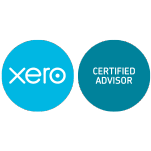The Court of Appeal recently ruled against Alesco NZ Ltd (a wholly-owned subsidiary of Alesco Corporation, an Australian company) regarding their use of optional convertible notes (OCNs) to fund a business acquisition. In simple terms, the OCN is a form of loan subject to a zero percent interest rate that could be exchanged for shares at some time in the future. The problem from the IRD’s perspective was that for New Zealand tax purposes the OCNs produced a ‘deemed interest’ deduction even though there was no corresponding payment of interest. From the lender’s perspective, there was no ‘deemed interest’ income to be returned by the Alesco Corporation in Australia. This mismatch resulted in a net tax advantage in New Zealand.
Other than that tax advantage there was no other identifiable reason for using the OCNs to fund the business acquisition. Some lessons from the case, which are broadly applicable to any person who files a tax return, have been summarised below.
The Court took a principled approach and considered that the rules were designed to capture the real economic effect of a transaction and given the lack of economic cost to Alesco, no interest deduction should have been claimed.
This creates the somewhat unsettling proposition that the Income Tax legislation should not only be interpreted based on how it is written but also on whether or not the outcome of a strict interpretation seems fair or reasonable. In doing so there is a need to take into account what Parliament would have contemplated when the legislation was written. This arguably provides the IRD with something akin to a wild card, enabling it to dispute a transaction simply on the basis that Parliament would not have contemplated the relevant outcome.
Alesco was charged a shortfall penalty for taking an abusive tax position calculated at 100% of the tax shortfall. The penalty was charged even though Alesco had advice from its advisor that the arrangement was acceptable. The court took the view that this subjective inquiry was irrelevant and the conclusion incorrect.
In Alesco’s case, if it hadn’t used the OCNs it would have had the option of funding the acquisition with some form of third-party funding (e.g. bank debt). Once a finding of tax avoidance was made the IRD was able to reconstruct the transaction to eliminate the tax advantage. In this case, that reconstruction occurred by reversing the interest deductions that had been claimed. It was argued for Alesco that if the OCN option had not been taken some form of debt would have been used that would have equally given rise to an interest deduction.
This argument also failed and the Court of Appeal confirmed that the IRD has the discretion to determine how a transaction should be reconstructed and was within its rights to reverse the effect of the interest deduction without allowing for the effect of an alternative funding cost. As a result, it is fair to say that Alesco was put into a worse position than it otherwise would have been if the acquisition had been debt-funded.
Guidance on how the IRD would determine whether an arrangement constitutes tax avoidance was issued in draft form in December 2011. However, at 117 pages it is difficult to apply in day-to-day situations. Until such time that the IRD suffers a defeat in the courts, the current uncertainty will continue.
All information in this newsletter is to the best of the authors’ knowledge true and accurate. No liability is assumed by the authors, or publishers, for any losses suffered by any person relying directly or indirectly upon this newsletter. It is recommended that clients should consult a senior representative of the firm before acting upon this information.


